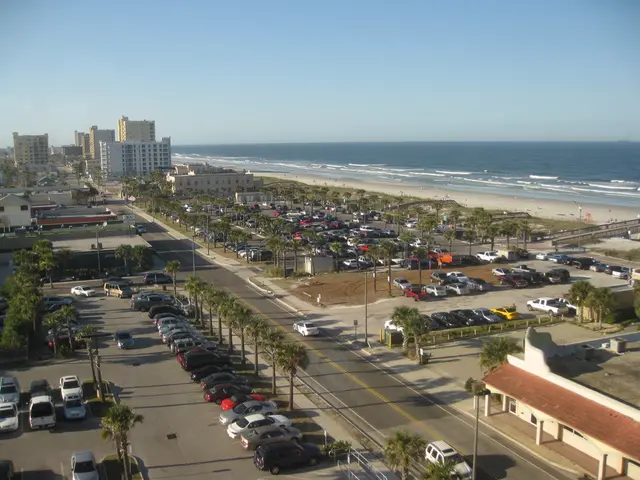Potential Threats to International Supply Networks Due to Climate Change
In a recent paper published on our website, a team of researchers led by Madalena Barata da Rocha, a Research Assistant, examines the economic disruptions caused by extreme weather events on global supply chains. Heather Grabbe, a Senior Fellow and Visiting Professor at University College London and KU Leuven, and Niclas Poitiers, a Research Fellow, also contributed to the study.
The researchers focus on three distinct forms of disruption: lower manufacturing production, reduced agricultural yields, and damage to infrastructure and disruption of trade routes. As extreme weather events become more frequent and intense due to climate change, their impact on supply chains will become significantly larger.
Madalena Barata da Rocha, the lead author, holds a Bachelor's and a Master's in Economics from Nova School of Business and Economics. She has previously interned at the Central Bank of Portugal and has experience in consulting and research on public finances management. Niclas Poitiers, another author, holds a Ph.D. in Economics from Universitat de Barcelona, an M.Sc. in economics from the Universität Bonn, and a B.Sc. from Universität Mannheim. His research interests include international trade, international macroeconomics, and the digital economy.
The paper analyses three specific extreme weather events – droughts, heatwaves, and floods – to study their impact on global supply chains. These events, when they disrupt transportation, agriculture, and infrastructure, can lead to significant economic losses and supply chain interruptions.
The potential scale of economic risks to global supply chains from extreme weather events is still poorly understood. To prepare for the future, businesses need to invest in a better understanding of the risks to their supply chains and in mitigation measures. For governments, it will become increasingly important to set the right incentives for companies to mitigate their risks.
Understanding the impacts of extreme weather events on the world economy is becoming increasingly important. Most extreme weather events are localized, but their economic impacts reverberate through global supply chains. In recent history, extreme weather events have had measurable effects on supply chains, but these effects have been limited by the diversified nature of global supply chains.
Madalena Barata da Rocha, in her MSc dissertation, focused on estimating and quantifying fiscal multipliers in Portugal. Niclas Poitiers' research focuses on the digital economy and its impact on international trade and macroeconomics. Heather Grabbe's research focuses on the political economy of the European Green Deal and the EU's international relationships and external policies.
In March 2025, Madalena Barata da Rocha joined our website as a Research Assistant. Niclas Poitiers joined in September 2019.
As we continue to grapple with the effects of climate change, understanding and mitigating the risks to global supply chains from extreme weather events will be crucial for businesses and governments alike.
Read also:
- chaos unveiled on Clowning Street: week 63's antics from 'Two-Tier Keir' and his chaotic Labour Circus
- Racing ahead in Renewable Energy Dominance: Changzhou, Jiangsu Pushes for Worldwide Renewable Energy Ascendancy
- Feeling disoriented or perplexed.
- The potential consequences of the European Union's Clean Hydrogen strategy in relation to exacerbating our global climate emergency.








